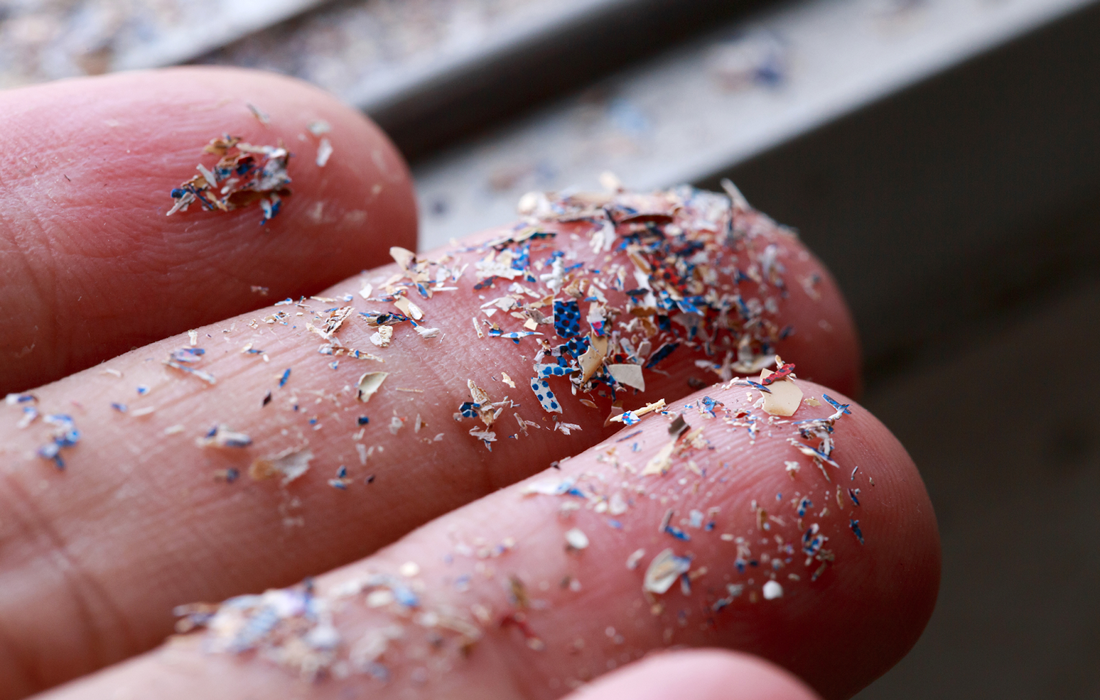Regenerative Medicine News and General Information
Is There a Link Between IBD and Microplastics?
Human ingestion of microplastics (MPs) is inevitable due to the ubiquity of MPs in various foods and drinking water. Whether the ingestion of MPs poses a substantial risk to human health is far from understood.
Microplastics are fragments of any type of plastic less than 5 mm in length, according to the U.S. National Oceanic and Atmospheric Administration (NOAA), and the European Chemicals Agency. They cause pollution by entering natural ecosystems from a variety of sources including cosmetics, clothing, and industrial processes.
What is IBD?
Inflammatory bowel disease (IBD) is a term for two conditions (Crohn’s disease and ulcerative colitis) that are characterized by chronic inflammation of the gastrointestinal (GI) tract.1 Prolonged inflammation results in damage to the GI tract. Some of the differences between Crohn’s disease and ulcerative colitis:
Crohn’s Disease
- It can affect any part of the GI tract (from the mouth to the anus). Most often it affects the portion of the small intestine before the large intestine/colon.
- Damaged areas appear in patches that are next to areas of healthy tissue.
- Inflammation may reach through multiple layers of the walls of the GI tract.
Ulcerative Colitis
- Occurs only in the large intestine (colon) and rectum.
- Damaged areas are continuous (not patchy), usually starting at the rectum and spreading further into the colon.
- Inflammation is present only in the innermost layer of the lining of the colon.
New Study Findings
A new study published in the journal Environmental Science & Technology evaluated the association between inflammatory bowel disease and greater amounts of microplastics in the stool.
Dr. Maria Neira, director of Public Health, Environment, and Social Determinants of Health at the World Health Organization (WHO), says that “We urgently need to know more about the health impact of microplastics because they are everywhere — including in our drinking water.”
“Based on the limited information we have, microplastics in drinking water don’t appear to pose a health risk at current levels. But we need to find out more. We also need to stop the rise in plastic pollution worldwide.”
Dr. Yan Zhang the corresponding author of the study previously found in an animal model that microplastics can accumulate in the liver, kidney, and gut, and that the accumulation was strongly dependent on the size of the microplastics.
The research team study fecal samples of 52 participants with IBD and 50 people without IBD who were otherwise healthy. They completed a questionnaire about the foods and drinks that they consumed and their working and living conditions over the previous year.
They found that participants with IBD had significantly more microplastics in their feces than the healthy group. They also found that the severity of ulcerative colitis and Crohn’s disease correlated with the amounts of microplastics.
The team noted that these patients with more microplastics tended to drink more bottled water, eat more takeaway food, or have greater exposure to dust where they lived or worked.
The researchers pointed out that the research cannot demonstrate that microplastics cause IBD, but rather they conclude that people with IBD are more likely to retain microplastics.
Sources:
Timothy Huzar. (2020, Jan 8). IBD and microplastics: Is there a link? Medical News Today. Retrieved from:
https://www.medicalnewstoday.com/articles/ibd-and-microplastics-is-there-a-link
Blair Crawford, Christopher; Quinn, Brian (2016). Microplastic Pollutants (1st ed.). Elsevier Science. ISBN 9780128094068
Arthur, Courtney; Baker, Joel; Bamford, Holly (2009). “Proceedings of the International Research Workshop on the Occurrence, Effects, and Fate of Microplastic Marine Debris” (PDF). NOAA Technical Memorandum.
Collignon, Amandine; Hecq, Jean-Henri; Galgani, François; Collard, France; Goffart, Anne (2014). “Annual variation in neustonic micro- and meso-plastic particles and zooplankton in the Bay of Calvi (Mediterranean–Corsica)” (PDF). Marine Pollution Bulletin. 79 (1–2): 293–8. doi:10.1016/j.marpolbul.2013.11.023. PMID 24360334.
Image from:

